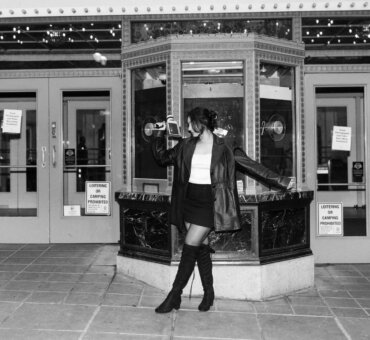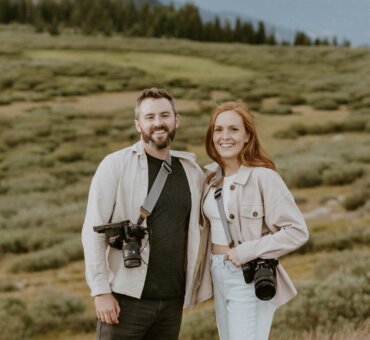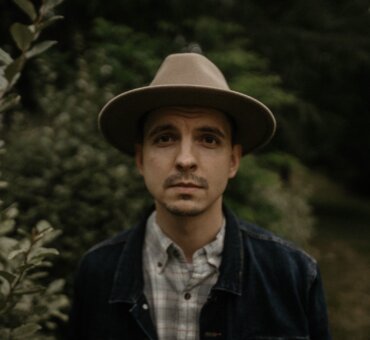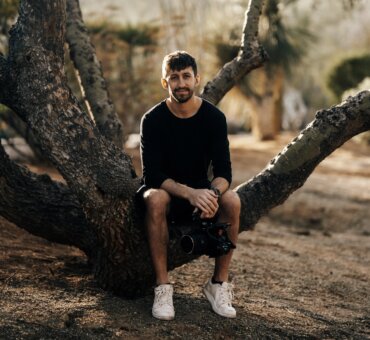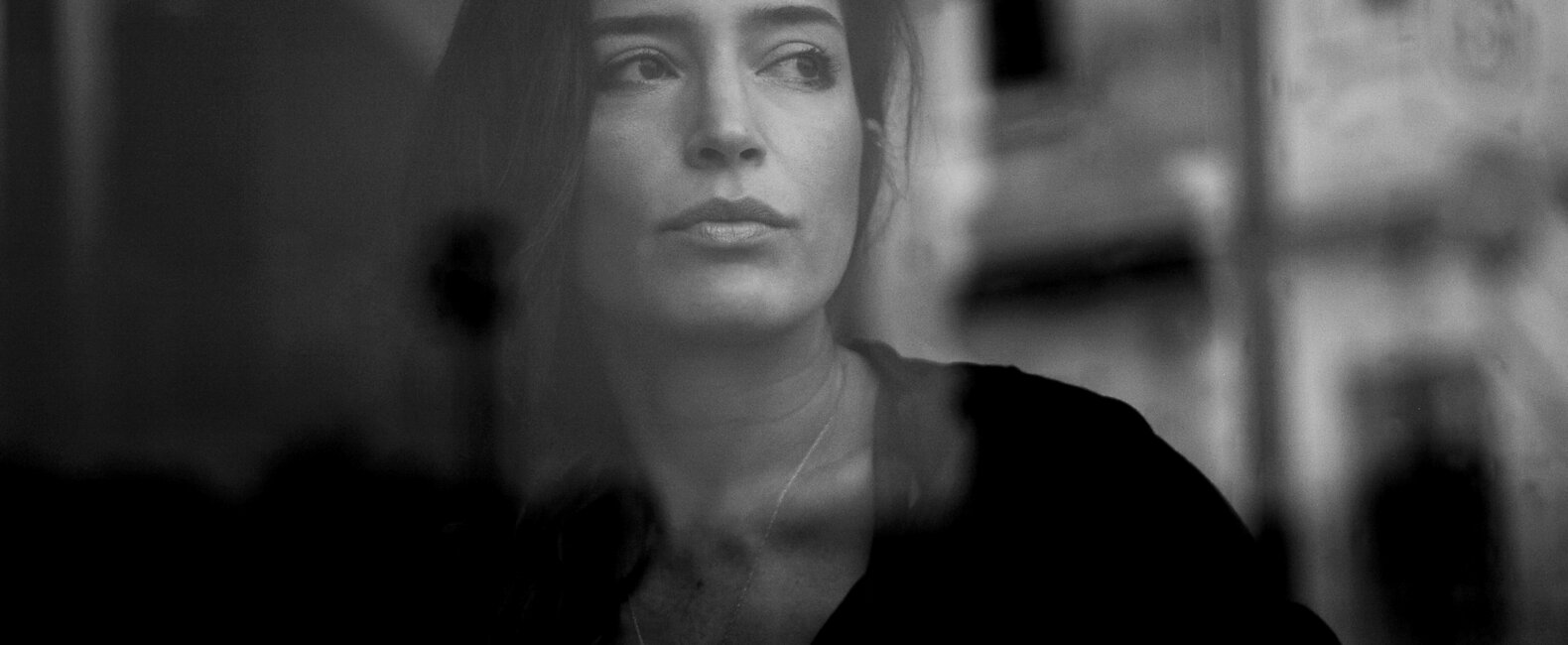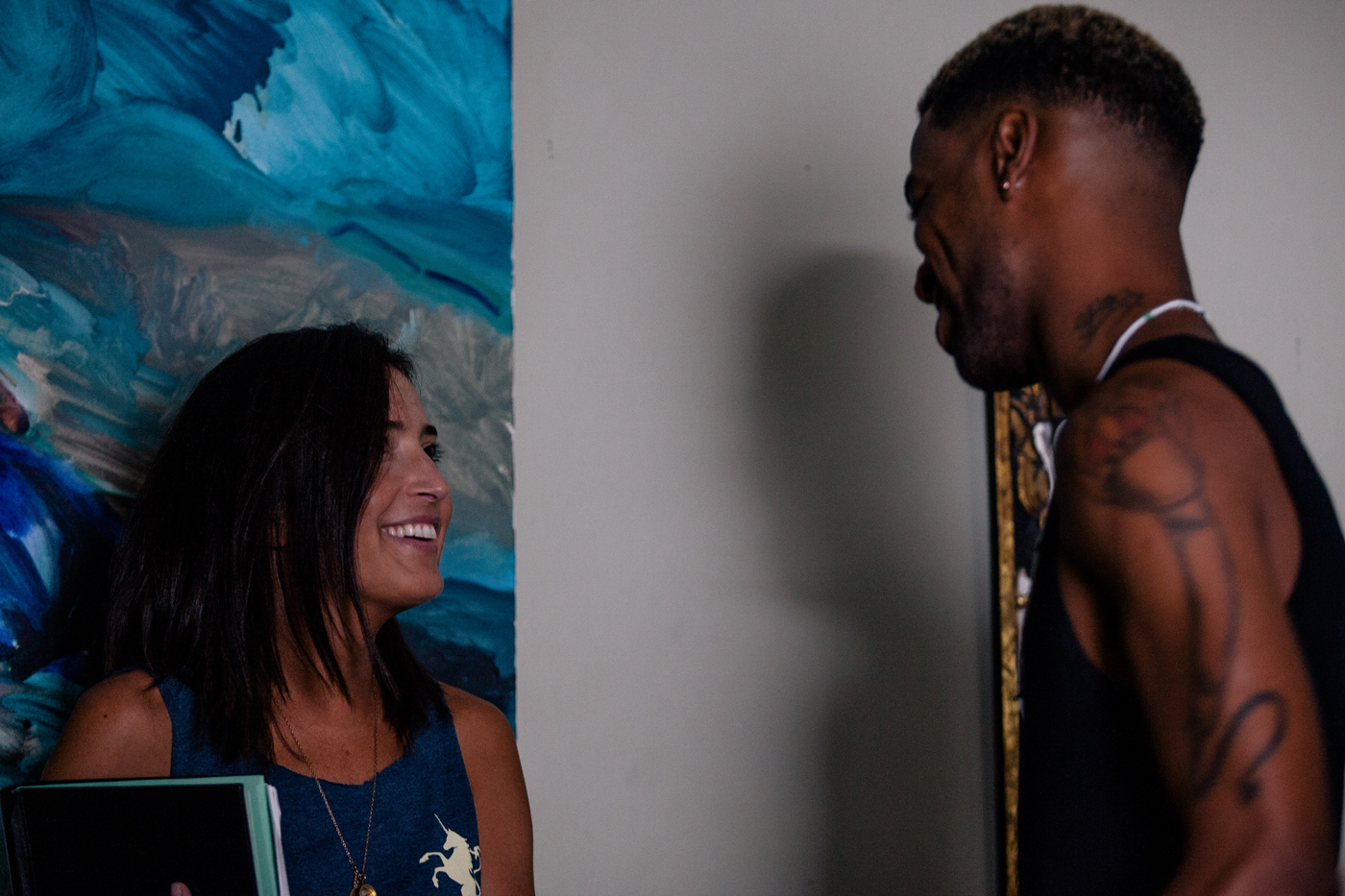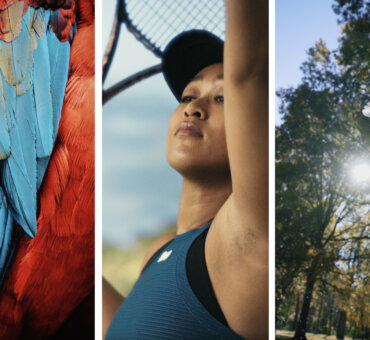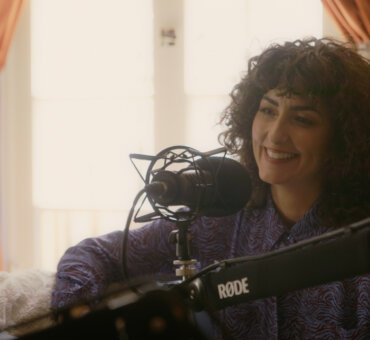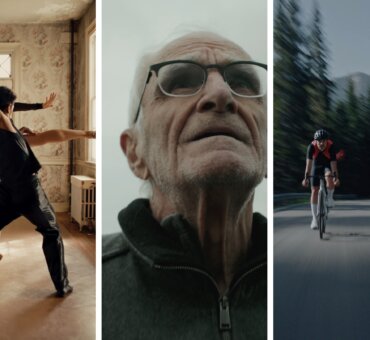It took seven years from the time Reed Morano graduated from NYU’s film school to the time she worked as a DP on the Academy Award-nominated film Frozen River. Seven years to begin making the work she wanted to make. Which is why, when we asked her what advice she’d give to a young filmmaker, the first thing she said was perseverance.
“You have to love it enough that it doesn’t matter how long it takes to get there. It’s almost not even about ‘getting there’; it’s about what you experience along the way,” Reed told us. And her advice counts because she’s gotten there. In 2015 she directed her first feature-length film, Meadowland.
Reed is a self-professed workaholic, but something about that term doesn’t seem quite right to us. And we think it’s simply because Reed loves filmmaking so much that it’s stopped seeming like “work.” If someone truly loves their work, is it fair to call them a workaholic? Check out what Reed has to say, and you’ll see what we mean.
Was there a moment when you knew you were going to be a filmmaker?
I think there were two moments. My father was a businessman; and when I was very young, he brought back a camera from Asia — one of those giant JVC home video cameras that record to VHS tapes. I was probably in first or second grade. He gave me the camera and told me, “You’re going to be in charge of documenting the family.” I was kind of annoyed at first. Like, “Not really interested.” But then he showed me how to use it, how to use the built-in fade; and before you know it, I was using the camera all the time. I was always writing stories when I was young; so it was sort of subconscious, but I had found a new medium with which to tell stories.
It started out with pretty boring stuff. Literally, footage of grass growing in the backyard. But eventually that evolved into me using my siblings to make commercials and music videos. I never really thought of it as a career. I knew writing was something you did with your life, so I figured I would become a writer.
But when it came time to apply for college, I’d basically stopped writing. So my dad suggested, “Why don’t you apply to NYU’s film school? You love taking pictures and you love telling stories — it just seems like the perfect thing.” So I applied and ended up getting in. It was a no-brainer and definitely the most interesting college prospect I had.
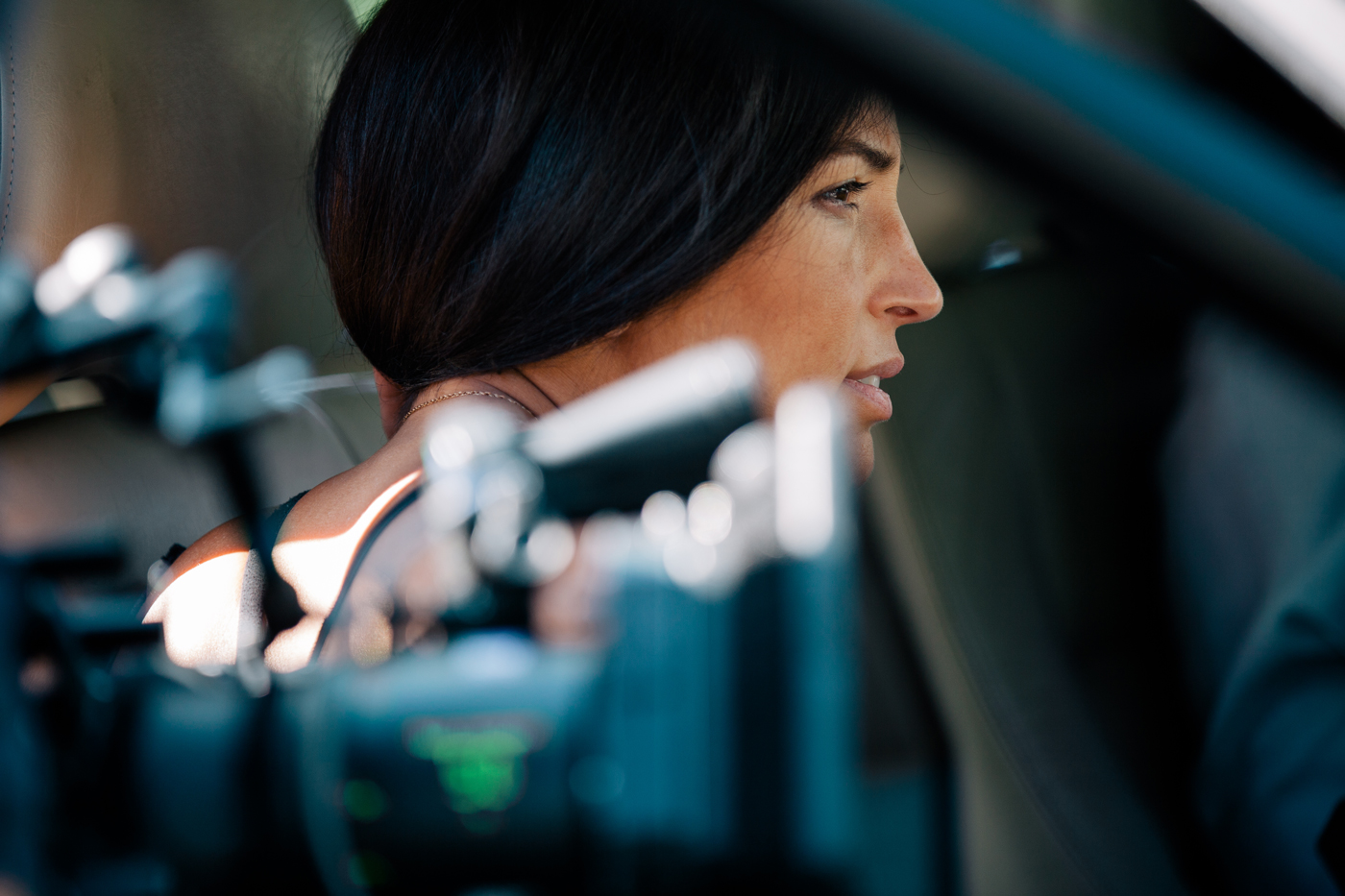
If you decide you want to be something, you have to jump in with both feet.
I began working as a PA. I hadn’t touched a camera yet. I didn’t know what anything was. I didn’t know what an apple box was. But from the very first shoot, I became fascinated by what the DP was doing. To me, the DP was seeing the most action and had the most exciting job. Everything the audience would see, they would see through the DP’s eyes. I found it fascinating: the light meters, the film lights, the camera movement, and composition to evoke emotion. I decided on that very first shoot that I wanted to be a DP, and I never looked back.
What did it mean for you to “become a DP”?
I asked the older students at NYU what I had to do to become a DP, and they were like, “Just tell everyone that you’re a DP.” I was like, “That was easy.” But when you’re at that level, you can do that because you’re in an environment where you can make mistakes. You don’t have to know everything; in fact, most of us knew nothing. My dad had told me long before, “No one is ever going to give you the power. You have to take the power.” This really applied here. I knew that if you decide you want to do something, or if you decide you want to be something, you have to jump in with both feet. So that’s what I tried to do.
Was that frightening?
I definitely wasn’t one hundred percent comfortable. When I was in film school, people were mainly shooting film. Video classes were a rarity. I got through all four years of film school without taking a single video class. At the time, there wasn’t even HD. People were shooting super 16 and 35, so there was definitely an intimidation factor in that we had no idea if anything we were shooting would be on the negative. Luckily, everyone was an amateur and nobody knew what they were doing. That made it easier. It also made it easier that very few people wanted to be a DP. Everyone there wanted to be a director. So it was easy to say, “I’m a DP. If you need a shooter, just let me know.” Everyone would always say yes. It was a very simple time.
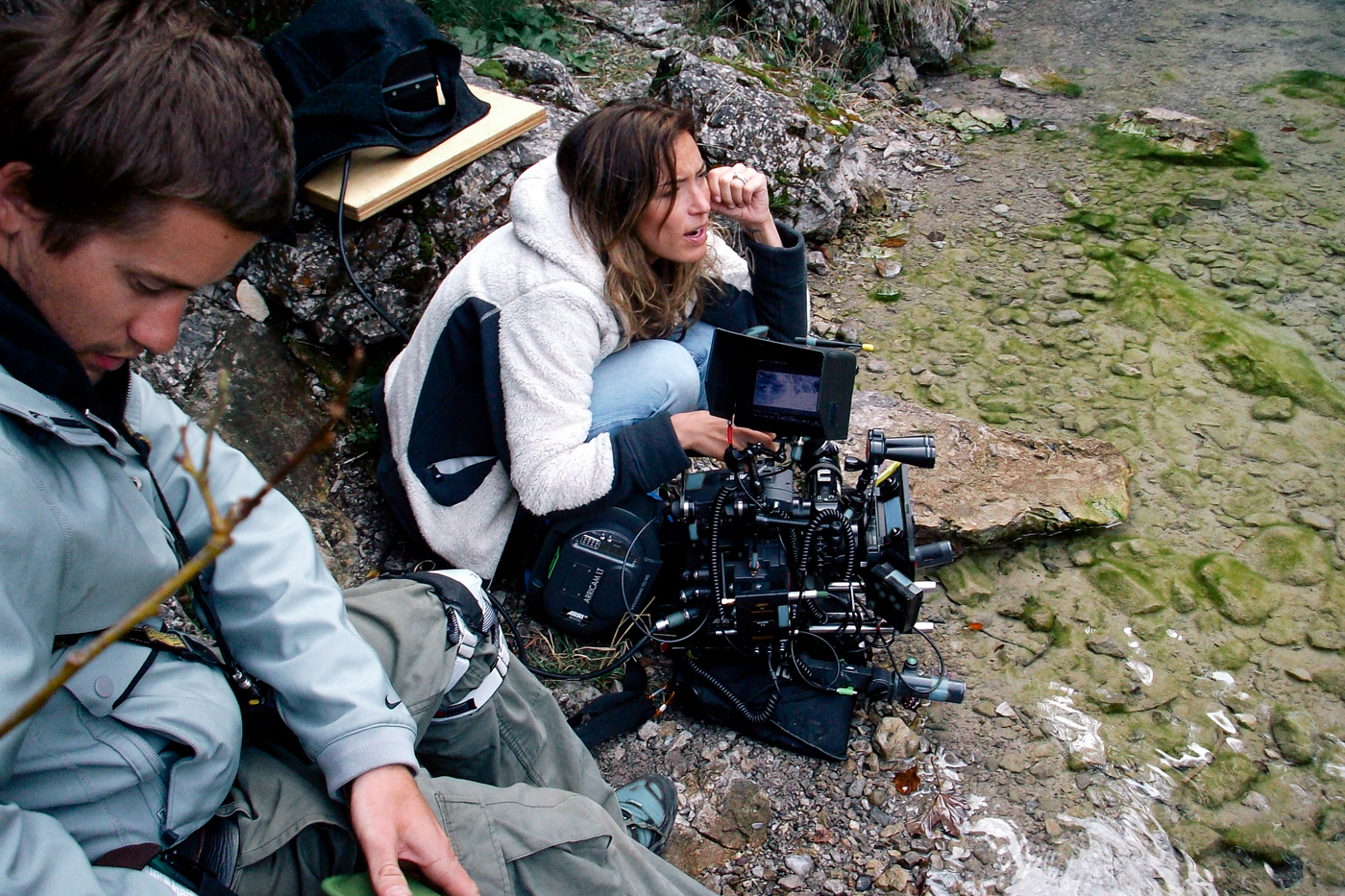
Were you worried that you’d develop the film and there’d be nothing on it?
Initially you do have that fear. But the magical part was imagining what could be on it. And the stakes were so low early on. As time went on and the budgets got higher, then, yeah, I’d get more nervous about it coming out — even though I actually had much more experience. I think there is this desperation when you first begin shooting film. You just want to get an exposure. So you’re like, “Okay, well, I’m going to bounce this light into the ceiling just so I know I have enough light.” I think the hardest thing at film school was figuring out how to use film lights to enhance and create a mood, rather than just getting an exposure.
I remember the first time I actually experimented with a lighting effect. It was very early on — one of the first films I directed, which was some kind of a weird homage to Alice in Wonderland. I had my roommates drinking from this little bottle that I’d labeled with a tag that said Drink Me. So they drink from this bottle and they turn into, like, dancing fiends. I turned the dorm room into a disco. I did a lighting effect with a disco ball. It was the first time I did anything where it wasn’t just about having enough light. It was about creating something visually appropriate for a twist in a scene. And it turned out really cool and funny and also super embarrassing, which is why I’ve never told anyone about it.
Well, it sounds awesome.
Yeah it was. One of the reasons I got into cinematography had a lot to do with the fact that I felt like directing took life experience, and I didn’t think I had any. My father had just passed away during my freshman year, and I think my brain was a little bit jumbled from the experience. I didn’t know what kind of stories I wanted to tell yet — I didn’t even know who I was. All I knew was I wanted to tell stories. So the best thing for me to do was go on other people’s adventures until I figured out what my own voice was.

Do you still think that — that directing requires life experience?
Oh my god, one hundred and fifty percent. When I directed my first feature [Meadowland], I felt totally nervous to direct for the first time. But I still felt the most prepared I’ve ever felt. There are things about the world and the human condition that I know now at my age that I don’t see how a person coming straight out of college could know. It happens, but it’s rare.
Did you need filmmaking experience or life experience?
I needed both. I needed experience in a technical role just to get experience to do the non-technical role. I needed to understand what pieces you need to tell a story. But I also needed to understand what it takes to make everything happen on set.
One thing the producers appreciated when I directed my feature was my ability to prioritize. Instead of saying, “I need this,” about everything, I’d say, “You know what? I shouldn’t spend money on this extremely extravagant thing when it’s not really integral to the story. We can lose it. It won’t affect the narrative. And now we can devote more money to the things that are important to the story.”
A lot of first-time filmmakers have a hard time letting things go. They want everything. They don’t understand that you’re lucky to get anything. As a director (and a DP), you have to make important decisions all day long, and you have to make them quickly. If a filmmaker hasn’t spent a lot of time on set, she won’t be as prepared for that.
There are so many solutions you learn while working on the set of other people’s movies. When it finally came time to do my own movie, I immediately had some kind of a workable solution whenever issues came up. I had already been in that scenario before. I don’t regret my decision to wait a very long time before directing my first feature. I don’t know how the world is going to receive it, but I’m really glad I waited until now.
I’ve heard people describe you as a workaholic. Do you think that’s true?
I think it’s true. If a compelling project comes along, I want to jump right in. I’m working full time right now, even though Meadowland is at Tribeca and about to go on the festival circuit. But I had an amazing opportunity come my way — a total dream project for a DP. I’m DPing the new HBO series that Martin Scorsese, Terence Winter, and Mick Jagger are doing, an untitled rock ‘n’ roll project about a record executive in the ’70s, and the sex- and drug-fueled world of music. So I guess my answer is I might be a workaholic.
Was there a moment when you transitioned from pretending to be a DP to actually being one?
I think once I started getting paid. At one point, I got this big show, a reality show on TLC called Cover Shot. I was DPing and making a really good day rate I could actually live off of. That’s when I knew, “Okay, I think I’m a DP now. Even though I’m not shooting the dramatic narrative stuff I wanted, at least I’m honing my operating and lighting skills while I’m making a living.”
Then, a step further was when I shot this feature called Frozen River. It went to Sundance and ended up winning the Grand Jury Prize. That was the first time I’d ever worked on anything that went to a major festival. It was then nominated for seven Independent Spirit Awards and two Academy Awards, so it was really big for me. That was the real moment when I was like, “Okay, now I’m starting to become the DP I want to be. Now I’m shooting the kinds of things I want to be shooting.” I still didn’t feel like I knew what I was doing though.
Do you feel like you know what you’re doing now?
I do. But I think it’s that interesting balance of knowing what I’m doing but also understanding I still know nothing. Every day on set, I’m learning something new; I’m aware that I still have tons to learn. I definitely don’t feel like I know everything; but when I need to do something, I at least have a sense of how to do it.
Be somebody people want to be around.
What advice would you give a young filmmaker?
I think you have to be prepared that nine times out of ten, it’s going to take a very long time to get where you want to go. Overnight success is rare and possibly a myth. I love filmmaking so much; it didn’t really matter. I didn’t notice the time passing. I didn’t mind working as a hedge fund secretary or a temp, and then taking time off when I knew there was going to be a shoot. And I didn’t mind working for free because I’d finally found the job I love.
In order to keep working as much as possible, you have to be an optimist. If you’re a pessimist, you’re not likely to make it, or it will just totally suck while you’re getting there. It’s a very difficult line of work to get into. As we all know, making movies is not a reliable business. There is almost no stage you can get to where it is reliable. Until you make it big, you’re going to be living paycheck to paycheck, if that. And even when people do make it, most are still living paycheck to paycheck.
Be easy to work with, easy to get along with; be proactive; and be somebody people want to be around. Skill is almost second to the kind of person you are. The skill will come and will improve with each job.

Early on, I took anything that came my way. For example, I shot a ninja movie once. That’s not the genre I necessarily wanted to be shooting, but I was still excited to do it because it would be a new challenge. And on a low budget, it was guaranteed that hilarity would ensue. At that time, any script that came my way, I’d take it. The first script I got that felt representative of who I want to be as a filmmaker was Frozen River. I graduated college in 2000, and I didn’t get that script until 2007. So it took seven years for me to shoot something that felt like me.
So my advice to a young filmmaker would be to take every experience that comes your way in the beginning. Beggars can’t be choosers. The most important thing is expanding your contacts and building your reel. There does come a point where you have to stop taking everything, but you’ll know when that point is. It’ll be when you’ve shot a little bit of everything, and you’re like, “Okay, now I need to put my foot down, try to get an agent, and really focus on dramas.” It takes time before you can get there.
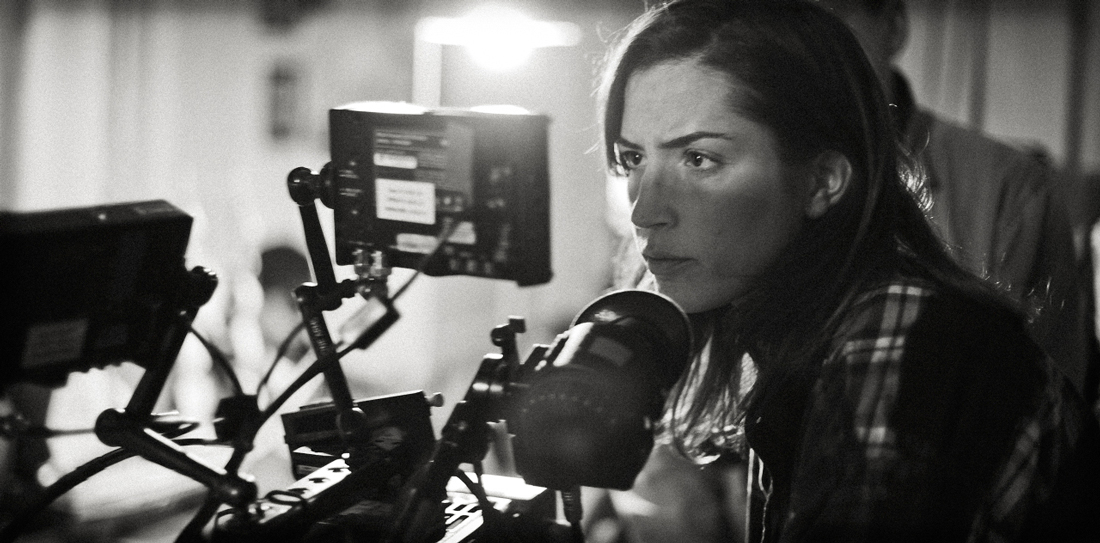
Take it from Reed: If your goal is to make films, then patience and dedication are required. Don’t get discouraged if it’s taking you longer than you thought to start doing the work you hope to do. If it takes seven years, ten years, whatever — stick with it. Your best work is ahead of you.




































































